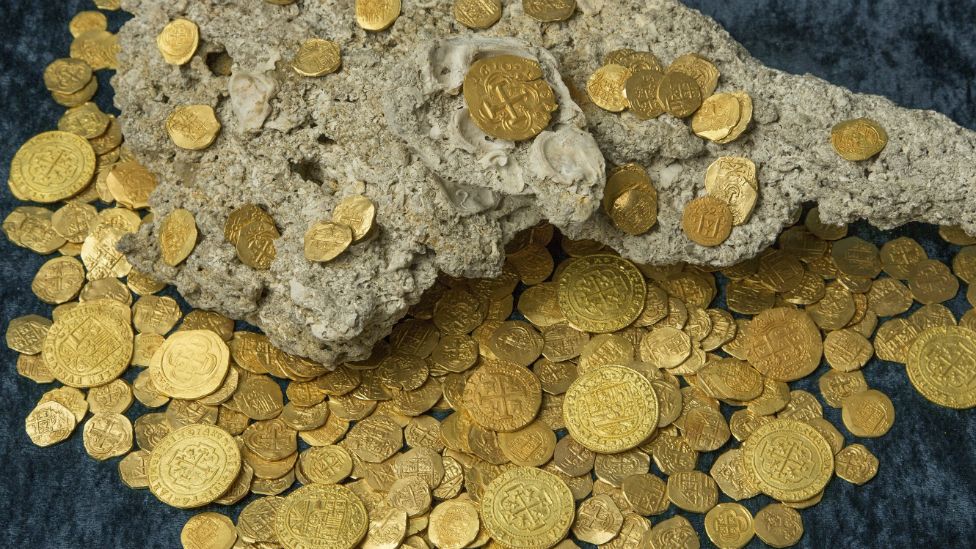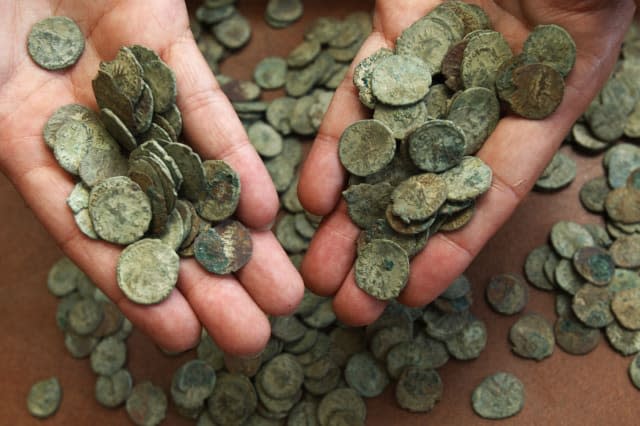In a quaint town nestled in northwestern Switzerland, a Swiss farmer unearthed a treasure trove of ancient coins months ago in Ueken. The discovery, consisting of bronze and silver Roman coins, is believed to have been buried approximately 1,700 years ago.
The remarkable find occurred by accident while the farmer was inspecting his cherry trees. Upon making the discovery, he promptly contacted local archaeological experts, who confirmed the presence of over 4,000 coins.

Similar discoveries of Roman coins are often made in Britain. Notably, in 2009, nearly 60,000 corroded coins, known as the Frome Hoard, were found in a field in Somerset.
The recent discovery aligns with a renewed global interest in Rome and Roman history, sparked by the unearthing of an intact tomb at the archaeological site of Pompeii in October.

Archaeologists suggest that Roman coins are typically found buried in large quantities because they were offered as ritual gifts to the Roman gods. However, while the majority of the Swiss coins have been excavated, definitive answers regarding their original purpose remain elusive.
Archaeologists have determined that the owner systematically buried them between 270 and 294 AD and never returned to recover them.
The coins, composed of bronze and silver components, have remarkably withstood the test of time and are exceptionally well-preserved in the soil.

Swiss coin expert Hugo Doppler explained, “The owner must have deliberately chosen these coins to hoard them.” Their silver content would have guaranteed certain value preservation in a time of economic uncertainty.
Swiss archaeologist Georg Matter expressed his excitement about the discovery, stating, “As an archaeologist, one hardly experiences something like this more than once in one’s career.”
Despite the excitement surrounding the find, the Swiss farmer who made the initial discovery won’t be able to keep his find. Per Swiss law, he will likely receive a finder’s fee, but the objects found belong to the public.
The coins will be showcased at the Vindonissa de Brugg Museum, specializing in Roman history, in the Swiss canton of Aargau.

